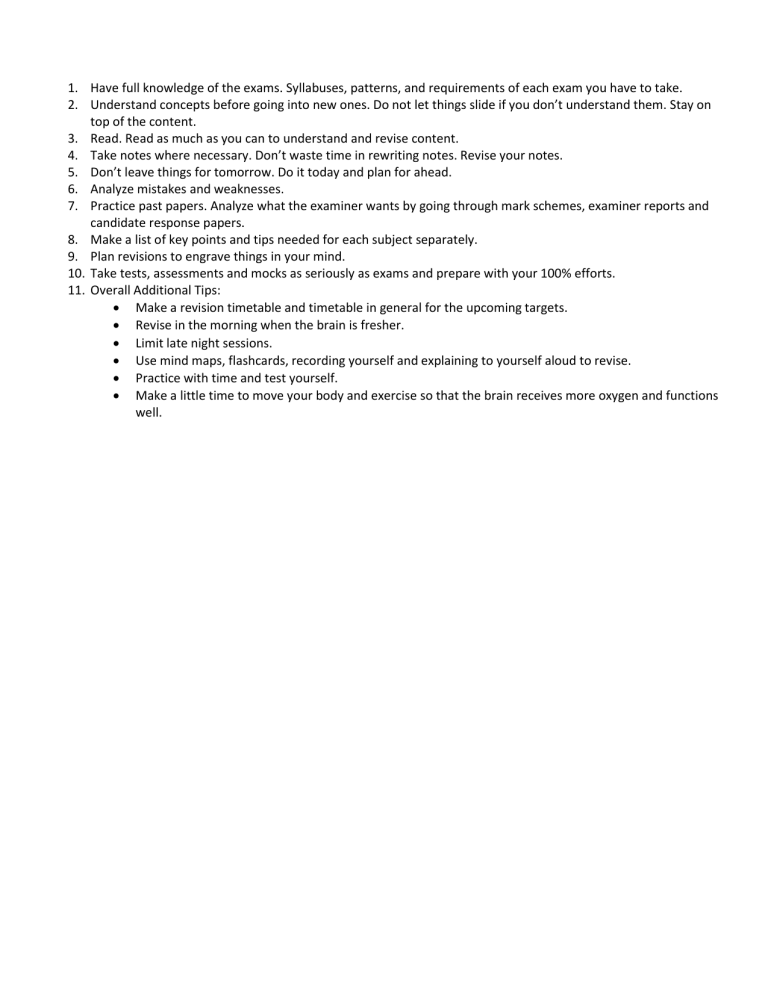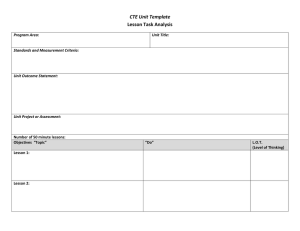
1. Have full knowledge of the exams. Syllabuses, patterns, and requirements of each exam you have to take. 2. Understand concepts before going into new ones. Do not let things slide if you don’t understand them. Stay on top of the content. 3. Read. Read as much as you can to understand and revise content. 4. Take notes where necessary. Don’t waste time in rewriting notes. Revise your notes. 5. Don’t leave things for tomorrow. Do it today and plan for ahead. 6. Analyze mistakes and weaknesses. 7. Practice past papers. Analyze what the examiner wants by going through mark schemes, examiner reports and candidate response papers. 8. Make a list of key points and tips needed for each subject separately. 9. Plan revisions to engrave things in your mind. 10. Take tests, assessments and mocks as seriously as exams and prepare with your 100% efforts. 11. Overall Additional Tips: Make a revision timetable and timetable in general for the upcoming targets. Revise in the morning when the brain is fresher. Limit late night sessions. Use mind maps, flashcards, recording yourself and explaining to yourself aloud to revise. Practice with time and test yourself. Make a little time to move your body and exercise so that the brain receives more oxygen and functions well.
